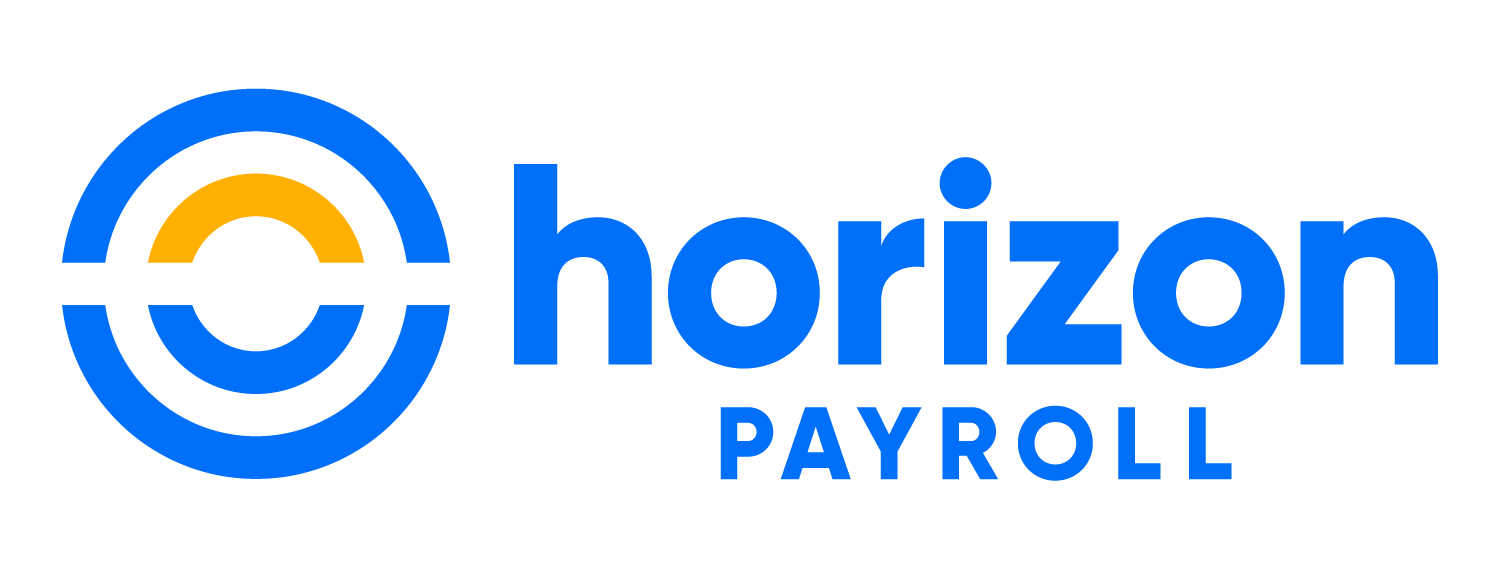8 min read
Six Reasons to Modernize Your Payroll Process
Every year, companies across the United States spend countless hours logging, filing, tracking, and managing their payroll, often utilizing a payroll...
Expert payroll management services with a personal touch.
View Solution Read Guide HR Support
HR SupportSimplify and personalize HR with a team of HR experts on-demand.
View Solution Read Guide Time & Attendance
Time & AttendanceWhy spend more unnecessary time and money managing your workforce?
View Solution Read Guide Hiring & Onboarding
Hiring & OnboardingTurn your candidates into employees with hiring & onboarding solutions.
View Solution Read GuideAdd On Solutions automate everyday tasks, prevent mistakes, and simplify business compliance.
View SolutionHelpful downloads and eBooks to empower your business.
Helpful tax and HR alerts to help keep your business compliant.
Payroll and tax-related forms and documents.
Log in to your employer (admin) and employee portals.
Horizon's blog provides valuable insight into payroll, compliance, human resources, and more.
See our client success stories for a case study on how we can help your business.
Payroll and HR strategy requires intelligent technology, personal attention and specialized expertise in the needs and nuances of your business.
We provide payroll and tax processing services for businesses from 1 to 1,000 employees or more. Today, we have nearly 1,000 customers in 40 states.
5 min read
![]() Horizon Payroll Solutions
:
November 1, 2023 at 10:33 AM
Horizon Payroll Solutions
:
November 1, 2023 at 10:33 AM
Religious institutions, such as churches and other religious organizations, play a vital role in communities worldwide. Like any other organization, they have employees who need to be compensated for their time and services. Managing payroll for religious institutions comes with unique considerations and challenges. In this article, we will provide a brief guide to payroll for religious institutions, covering essential aspects such as employee classifications, tax-exempt status, pay methods, deductions, fund allocations, and more.
Churches, much like ordinary businesses, have the responsibility of managing payroll for their employees. However, due to the unique nature of religious institutions and the various roles within them, managing payroll reports for churches can come with several considerations and challenges. From determining employee classifications to ensuring compliance with tax regulations, churches must navigate a complex landscape to ensure accurate and timely compensation for their staff. By understanding the intricacies of payroll management in religious institutions, churches can streamline their processes and effectively meet the financial needs of their employees.
Running payroll for religious organizations requires careful consideration and attention to detail. Religious institutions have unique characteristics and obligations that must be considered when managing payroll and tax compliance. There are several considerations specific to religious organizations; by understanding these key factors, religious institutions can ensure compliance, accuracy, and efficiency in their payroll processes, ultimately supporting their mission and supporting their valued employees.
Determining classifications for church employees is a fundamental step in managing payroll for religious organizations. Religious institutions encompass various roles, including clergy members, administrative staff, custodial personnel, and more. Each of these roles may have different employment statuses and responsibilities, which directly impact payroll requirements and exemptions. Correctly identifying and differentiating between these employee types is crucial for accurate payroll processing. By determining classifications for church employees, religious organizations can ensure that payroll obligations, such as tax withholdings and benefit allocations, are appropriately applied to each employee category, facilitating fair and compliant compensation practices within the religious institution.

Religious institutions often enjoy tax-exempt status, but it's crucial to understand that these tax exemptions may not apply to all employees. While clergy members may be exempt from certain taxes, non-clergy employees may still be subject to standard payroll tax regulations. Religious organizations should ensure they accurately define the tax-exempt and non-exempt status of their employees to avoid any legal or financial complications.
Choosing the pay method and frequency is an essential decision for religious institutions when managing payroll. Religious organizations have the flexibility to select a payment method that suits their employees' preferences and aligns with their budgetary considerations. Standard pay methods include direct deposit, physical checks, or electronic payment platforms. Each option has advantages, such as the convenience and security of direct deposit or the traditional approach of physical checks. Additionally, deciding on the pay frequency, whether it be weekly, bi-weekly, or monthly, depends on factors such as the organization's financial resources and the preferences of the employees. By carefully considering the payment method and frequency, religious institutions can ensure efficient and timely compensation, contributing to employee satisfaction and smooth payroll operations.
Collecting accurate employee information, including W-4 forms, is crucial for payroll management in religious institutions. W-4 forms are essential documents that provide vital tax withholding information necessary for proper payroll processing. Religious organizations must ensure that all employees, regardless of their role, complete W-4 forms accurately and promptly. These forms capture filing status, exemptions, and additional withholdings. By collecting W-4 forms and other pertinent employee information, religious institutions can ensure that the correct amount of taxes are withheld from each employee's paycheck, avoiding potential issues with the Internal Revenue Service (IRS) and maintaining compliance with tax regulations. Additionally, accurate employee information allows for the efficient administration of benefits and other payroll deductions, streamlining overall payroll operations within the institution.
Religious institutions often offer various benefits to their employees, such as health insurance, retirement plans, and other deductions. It is important to set up payroll deductions accurately to ensure that the correct amounts are withheld and allocated to these benefits. Properly managing these deductions helps employees receive the benefits they are entitled to while maintaining compliance with applicable laws and regulations.
Religious institutions may receive funds from donations, grants, and other sources. Properly managing fund allocations ensures that employee salaries are paid on time and that financial resources are allocated appropriately. Transparent accounting and bookkeeping practices are crucial to maintaining transparency and ensuring funds are distributed according to the organization's mission and goals.
While clergy members may be exempt from certain payroll taxes, non-clergy employees are generally subject to standard tax regulations. Religious institutions must calculate and withhold the appropriate amounts of federal, state, and local taxes from their non-clergy employees' wages. This ensures compliance with tax laws and prevents any potential legal issues.

Managing payroll for religious institutions can be complex and time-consuming. To streamline the process and ensure accurate payroll management, many religious organizations turn to trusted payroll management providers like Horizon! At Horizon, we provide comprehensive payroll services tailored specifically for your business or religious organization. Check out some of our top-rated solutions below!
At Horizon, we have extensive experience working with religious organizations and understand the unique payroll challenges they face. Our team of experts is well-versed in the intricacies of payroll management for churches, synagogues, mosques, and other religious institutions. We stay current with the latest regulations and compliance requirements specific to religious organizations, ensuring accurate and compliant payroll processing.
Outsourcing your church’s payroll can provide numerous benefits and alleviate the burden of managing payroll internally. By partnering with a trusted payroll provider, like Horizon, you have access to specialized expertise and dedicated resources.
Religious institutions must adhere to specific tax regulations and compliance standards. By outsourcing payroll to our expert team, you can rely on Horizon’s expertise to ensure long-term compliance and maximize tax benefits. We stay updated on tax laws and regulations applicable to religious organizations, mitigating the risk of non-compliance and potential penalties.
As your church grows, so does the complexity of payroll management. Horizon provides scalable payroll software and solutions that can accommodate the changing needs of your organization. Whether you have a handful of employees or a large staff, Horizon's payroll system can handle the volume and complexity, ensuring accurate and timely processing.

Horizon is proud to offer a range of valuable additional services for businesses and religious organizations alike. Our comprehensive solutions extend beyond payroll and encompass various aspects of HR and other administrative functions.
Horizon provides comprehensive HR support and benefits management services for businesses of all kinds. Managing human resources can be complex, but with Horizon's expertise, your organization can navigate the intricacies of HR processes more effectively. Our team of professionals can assist with various HR functions, including employee onboarding, policy development, and benefits administration, ensuring that your employees have access to valuable benefits such as health insurance, retirement plans, and other perks. Our team stays up to date with the latest HR regulations and compliance requirements, helping you maintain legal and ethical practices in all HR matters.
Horizon also offers comprehensive hiring and onboarding solutions for religious organizations and businesses, simplifying the recruitment process and ensuring a smooth transition for new hires. Finding and attracting the right talent for your team is crucial; we can assist in creating job postings, conducting background checks, verifying employment eligibility, and managing the overall onboarding process. By leveraging Horizon's hiring and onboarding solutions, your organization can efficiently build a talented and dedicated team that will contribute to your overall growth and success.
Horizon understands the importance of accurate time tracking and attendance management for your team’s employees. That's why we offer robust time-tracking solutions designed to streamline these processes. These services ensure accurate payroll processing, eliminates manual errors, and promotes fairness in compensation.
Managing payroll for religious institutions requires careful consideration and adherence to specific requirements. When partnering with Horizon, we will create a payroll solution that meets your organization’s unique needs and ensure dedicated customer service. Reach out to our team today and discover how we can simplify your payroll management for the benefit of your religious institution.

8 min read
Every year, companies across the United States spend countless hours logging, filing, tracking, and managing their payroll, often utilizing a payroll...

8 min read
When it comes to payroll management, businesses are often faced with a tough decision: go with a big-name billion-dollar company like Paycor/Paychex...

6 min read
Unlimited PTO shows up on job postings like a shiny badge of modern workplace culture. But beneath the surface, it’s not a plug-and-play win. It’s a...